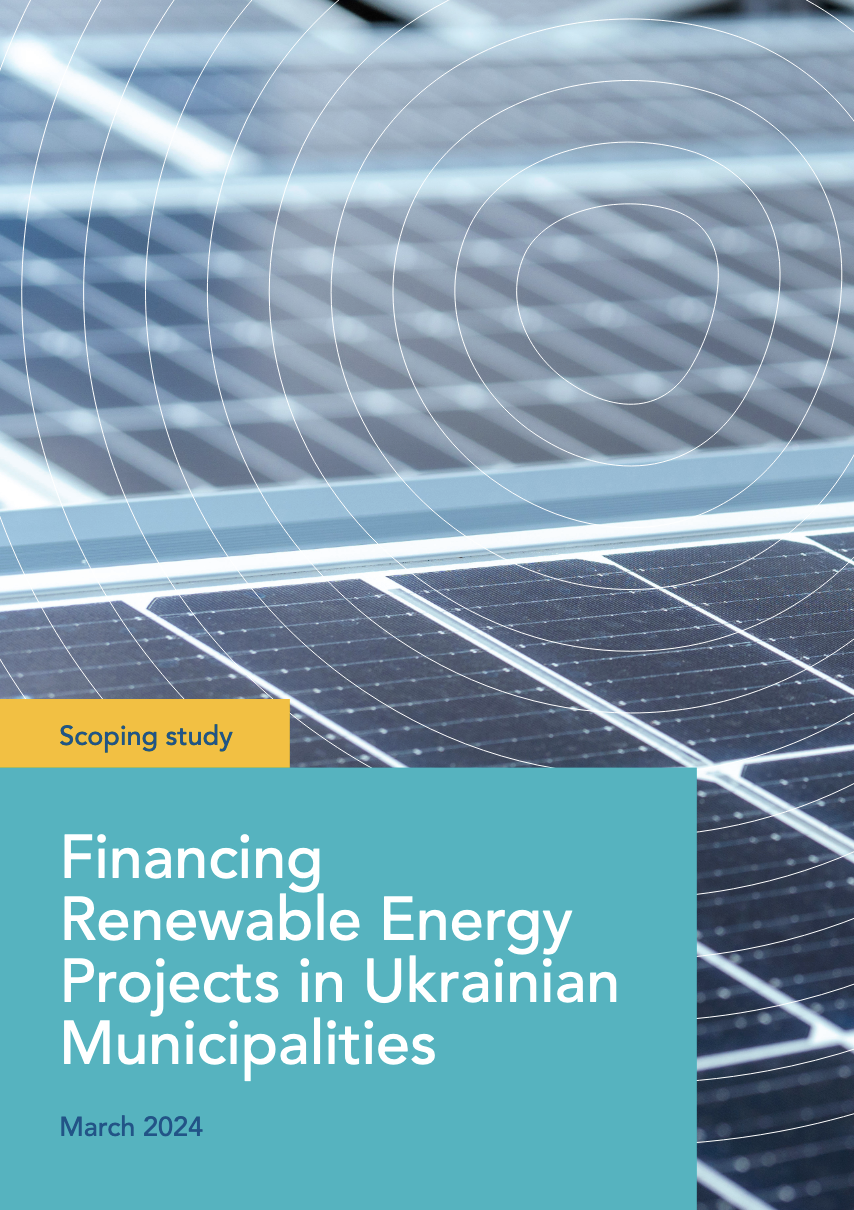Search by key words or by sector (energy, climate, buildings, agriculture, industry, environment, finance, EU accession etc)

Green jobs in Vinnytsia City Territorial Community
This study by Resource & Analysis Center “Society and Environment” and Razom We Stand presents the results of estimation of the current number of green jobs in the Vinnytsia city territorial community; a survey of municipal enterprises regarding the current state and prospects of their activities, as well as an assessment of the personnel and educational needs of enterprises and their prospects; analysis of education providers from the point of view of filling the demand for green professions.

Gender-sensitive recovery and development at the local level: 20 recommendations
This policy brief by Cedos gives recommendations regarding the implementation of gender equality and inclusion principles in the recovery and development processes at the local level in Ukraine. It considers both public policies and specific practical solutions in six fields: governance, budgeting, security, social protection, mobility, and leisure.

Climate damage caused by Russia’s war in Ukraine in 24 months
Russia’s war in Ukraine has caused extensive damage. Less well-known are the climate costs of the billions of litres of fuel used by military vehicles, vast fields and forests set ablaze, hundreds of oil and gas structures blown up and mountains of steel and cement used to fortify the front lines and, increasingly, cities and energy infrastructure. According to this latest report by the Initiatives on GHG Accounting of War, the total climate damage caused by the Russian Federation in two years of full-scale invasion of Ukraine amounts to $32 billion.

A Solar Marshall Plan for Ukraine
Read the policy paper by Greenpeace and Berlin Economics assessing the potential integration of larger amounts of solar PV into Ukraine’s electricity system by 2027 and 2030, using a techno-economic modelling approach to determine a cost-optimal, adequate energy system.

Preliminary environmental and legal analysis of the breach of the Kakhovka dam and its impacts
The report by Resource & Analysis Center “Society and Environment”, Coalition “Ukraine. 5 AM” and NGO “Fund Support for Fundamental Research” describes the circumstances associated with the Kakhovka dam breach of June 6, 2023, the environmental impacts of the dam destruction, the international legal qualification of the actions of the parties to the armed conflict, and possible individual criminal liability based on the Rome Statute of the International Criminal Court and the Criminal Code of Ukraine.

The Recovery of Ukraine Energy Sector: A Call for Support and Collaboration with Municipalities
This brief by by Centre for Environmental Initiatives “Ecoaction”, NGO Ecoclub, Razom We Stand, CEE Bankwatch, Greenpeace, RePower Ukraine and Energy Act for Ukraine Foundation outlines the current state of play in the field of green energy recovery in Ukraine and recommends foreign governments, international partners, and national authorities to partner with local communities and rebuild the energy sector.

Sustainable rebuilding of Ukrainian cities
The pilot project ‘Sustainable rebuilding of Ukrainian cities’ is a Eurocities initiative to mobilise local partnerships for a sustainable reconstruction of Ukrainian cities. The paper is structured along five main entry points that are critical for sustainable rebuilding: integrated urban planning, clean energy and energy efficiency, disaster risk reduction and resilience building, circularity, and sustainable urban mobility.

Post-war Green reconstruction of Ukraine: processes, stakeholders, public participation
This study by the Resource and Analysis Center “Society and Environment” of public access to decision-making related to the recovery of Ukraine in the context of environmental protection and climate change mitigation analyzes current processes around the planning of Ukraine’s future and ongoing reconstruction.

Financing Renewable Energy Projects in Ukrainian Municipalities
The study by NGO Ecoclub delves into the effectiveness of existing financial support mechanisms for municipalities in Ukraine and offers strategic insights into structuring financial aid to bolster the development of small-scale renewable energy sources (RES) within municipal sectors.